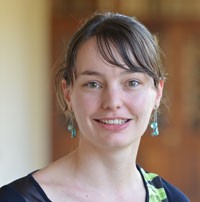The impact of rainwater harvesting on water flow regulation in a semi-arid catchment: A South African case study of the Modder River catchment
Introduction
In drylands, water is the main limiting resource for ecosystem functioning and human activity. Water flow regulation is a fundamental ecosystem service that provides benefits to society in the form of water supply for agriculture, industry, and households, as well as maintenance of minimum ecological flow.Climate change is expected to affect the hydrological cycle in semi-arid regions of southern Africa, which could lead to an increase in spatial and temporal water scarcity. For a more optimal use of (limited) water resources, land management options such as rainwater harvesting could be used. This technique reduces direct surface runoff and increases soil infiltration, which improves (local) water retention. Hence, the research objective of this study was to quantify water flow regulation within a semi-arid catchment and investigate the impact of the implementation of rainwater harvesting for more optimal water flow regulation. Several scenarios were investigated, ranging from upscaling rainwater harvesting in subsistence farming, to its introduction into commercial farming, to large-scale implementation in rangelands.
Methodology
The research was carried out in the Modder River catchment, located in the Free State Province of South Africa. The Basin covers 1.73 million hectares and is characterized by a semi-arid climate. The SWAT model was used to simulate the hydrological pathways within the catchment [1]. Georeferenced data and maps were collected, including digital elevation, land use, and soil type maps. Climate and streamflow data from local gauging stations were also collected. All data were included in the setup of the model. Scenario analysis was carried out through implementation of different rainwater harvesting techniques within different land use types, including i) upscaling of in-field rainwater harvesting within subsistence farming, ii) introduction of in-field rainwater harvesting within commercial farming, and iii) introduction of small reservoirs or ponds within rangelands.
Results and Conclusions
The results consisted of the output from the model runs, calibration process, sensitivity analysis, and validation of the model. The ecosystem service of water flow regulation was also quantified. In addition, the results from the scenario analysis in which rainwater harvesting was implemented led researchers to expect that rainwater harvesting will improve water flow regulation by i) decreasing direct surface runoff and increase soil infiltration during rainfall events, and by ii) increasing groundwater recharge that will maintain baseflow during dry periods.
References
[1] Arnold JG, Srinivasan R, Muttiah RS, Williams JR (1998). Large area hydrologic modeling and assessment Part I: Model development. J. Am. Water Resour. Assoc. 34, 73–89.
Supervisors
Yali Woyessa, Central University of Technology, Bloemfontein, South Africa
David Wiberg, Water Program, IIASA
Note
Johanna Schild of VU University Amsterdam, Netherlands, is a citizen of the Netherlands and was funded by IIASA’s National Member Organization of the Netherlands during the SA-YSSP.
Please note these Proceedings have received limited or no review from supervisors and IIASA program directors, and the views and results expressed therein do not necessarily represent IIASA, its National Member Organizations, or other organizations supporting the work.

CONTACT DETAILS
Principal Research Scholar Exploratory Modeling of Human-natural Systems Research Group - Advancing Systems Analysis Program
Principal Research Scholar Systemic Risk and Resilience Research Group - Advancing Systems Analysis Program
Principal Research Scholar Cooperation and Transformative Governance Research Group - Advancing Systems Analysis Program
Further information


